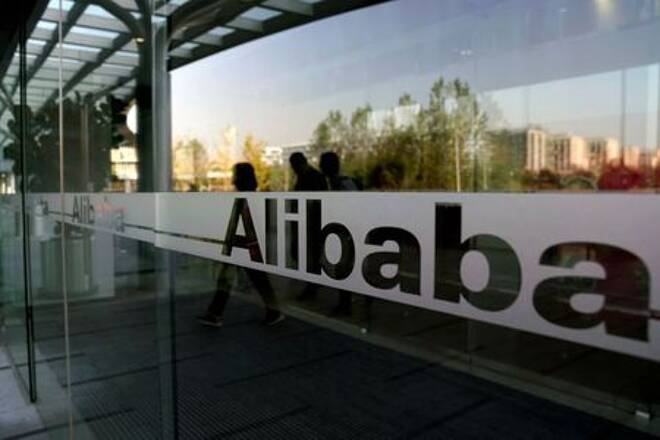Advertisement
Advertisement
In Fresh Regulatory Move, China Tells Tech Giants to Stop Blocking Rivals’ Links
By:
BEIJING (Reuters) -China fired a fresh regulatory shot at its tech giants on Monday, telling them to end a long-standing practice of blocking each other's links on their sites or face consequences.
In this article:
The comments, made by the Ministry of Industry and Information Technology (MIIT) at a news briefing, mark the latest step in Beijing’s broad regulatory crackdown that has ensnared sectors from technology to education and property and wiped billions of dollars off the market value of some of the country’s largest companies.
China’s internet is dominated by a handful of technology giants which have historically blocked links and services by rivals on their platforms.
Restricting normal access to internet links without proper reason “affects the user experience, damages the rights of users and disrupts market order,” said MIIT spokesperson Zhao Zhiguo, adding that the ministry had received reports and complaints from users since it launched a review of industry practices in July.
“At present we are guiding relevant companies to carry out self-examination and rectification,” he said, citing instant messaging platforms as one of the first areas they were targeting.
He did not specify what the consequences would be for companies that failed to abide with the new guidelines.
The MIIT did not name any companies, but the 21st Century Business Herald newspaper reported on Saturday that Alibaba Group Holding Ltd and Tencent Holdings Ltd were among the firms told to end the practice by an unspecified time last week.
Shares in Alibaba Group and Tencent Holdings fell on Monday by over 6% and 3% respectively against a 3% decline in the Hang Seng Tech Index.
The practice targeted by the MIIT is common.
Tencent restricts users from sharing content from ByteDance-owned short video app Douyin on Tencent’s instant messaging apps WeChat and QQ. In February, Douyin filed a complaint with a Beijing court saying that it constituted monopolistic behaviour. Tencent has called those accusations baseless.
In other cases, Alibaba’s Taobao and Tmall e-commerce marketplaces do not allow Tencent’s payment service WeChat Pay to be used as a payment option.
Tencent said it supported the MIIT’s guidance and would make the necessary changes in phases.
An Alibaba spokesperson referred Reuters to remarks made by CEO Daniel Zhang on Aug. 3, when he said rectification was “highly necessary”.
“Forced cracks in China’s walled gardens has the potential to re-write China’s digital advertising and e-commerce landscapes,” said Michael Norris, research and strategy manager at Shanghai-based consultancy AgencyChina.
“In the short term, all eyes will be on Tencent as it comes to grips with what it means to open WeChat to Alibaba and ByteDance.”
The MIIT also said on Monday that China had “too many” electric vehicle (EV) makers and the government will encourage consolidation.
For a look at all of today’s economic events, check out our economic calendar.
(Reporting by Brenda Ghoh and Shen Yan; Editing by Christopher Cushing, Kenneth Maxwell and Ana Nicolaci da Costa)
About the Author
Reuterscontributor
Reuters, the news and media division of Thomson Reuters, is the world’s largest international multimedia news provider reaching more than one billion people every day. Reuters provides trusted business, financial, national, and international news to professionals via Thomson Reuters desktops, the world's media organizations, and directly to consumers at Reuters.com and via Reuters TV. Learn more about Thomson Reuters products:
Latest news and analysis
Advertisement
